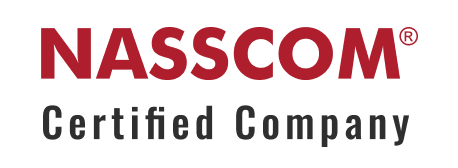Trusted by everyone. Fortune 500 to Startups.













+
Years Since Inception
+
Continents
%
Top Talents
+
Talented Members
+
Clients Satisfied
+
Projects Delivered
+
Million End Users
+
Awards
Our expertise spans a wide spectrum of industries, and our RPA services are designed to automate repetitive, rule-based tasks across various business functions. From finance and HR to customer service and supply chain, GoodWorkLabs offers end-to-end RPA solutions. Make use of the power of innovation with our state-of-the-art RPA software solutions. Our team of skilled developers leverages the latest technologies to create bespoke automation solutions that seamlessly integrate into your existing workflows. GoodWorkLabs has a proven track record of successfully implementing RPA projects for businesses of all sizes.
We understand that every business is unique. Our RPA solutions are scalable and flexible, allowing for easy adaptation to changing business requirements. Whether you are a startup or an enterprise, we have the right automation solutions for you. GoodWorkLabs ensures seamless integration of RPA into your current infrastructure, minimizing downtime and optimizing your processes without any hassle. We understand that each business has unique needs, and our RPA solutions are tailored accordingly. We stay ahead of the curve by incorporating the latest advancements in RPA technology, ensuring that our clients benefit from the most cutting-edge solutions.
GoodWorkLabs is your gateway to a revolutionary Robotic Process Automation (RPA) experience. What sets us apart from other RPA services is our unwavering commitment to innovation, efficiency, and client satisfaction. At GoodWorkLabs, we don’t just automate processes; we elevate them to new heights with cutting-edge technology and a team of experts dedicated to delivering unparalleled results. Our bespoke RPA solutions are tailor-made to meet the unique needs of your business, ensuring seamless integration and optimized workflows. With a focus on scalability and adaptability, GoodWorkLabs ensures that your RPA journey is not just transformative but future-proof. Trust us to go beyond the ordinary, providing RPA services that redefine efficiency and elevate your business to unprecedented heights
Case Studies

Top Developers 2022

Technology Fast 50 2016

High – Growth Copanies Asia-Pacific – 2020

Dream Company to work for IT Sector – 2023

Best App Designs 2023

RedHerring Global Top 100 Award

Best of India Awards – 2022

Certified as a Google Developer Agency
TESTIMONIAL
![]()
Robotic Process Automation (RPA) is a technology that allows software robots or “bots” to automate repetitive and rule-based tasks typically performed by humans. RPA requires interaction with the user interface of existing applications and systems, mimicking human actions to execute tasks.
![]()
RPA has a number of benefits, including the following –
![]()
RPA (Robotic Process Automation) can be applied in various ways across different industries and business functions. Here are some benefits of using robot process automation- data entry and migration, report generation, order processing, customer service and support, financial and accounting processes, HR and employee onboarding.
![]()
RPA (Robotic Process Automation) can be highly beneficial when implemented properly, but like any technology, it also comes with its own challenges. Whether RPA is more trouble than it’s worth depends on several factors, including the specific use case, the complexity of the processes involved, and the organization’s readiness for RPA implementation.
It is crucial to conduct a thorough analysis of your organization’s specific needs, evaluate the potential benefits and challenges, and consider factors such as process suitability, cost-benefit analysis, and long-term scalability before deciding if RPA is the right choice for your business.